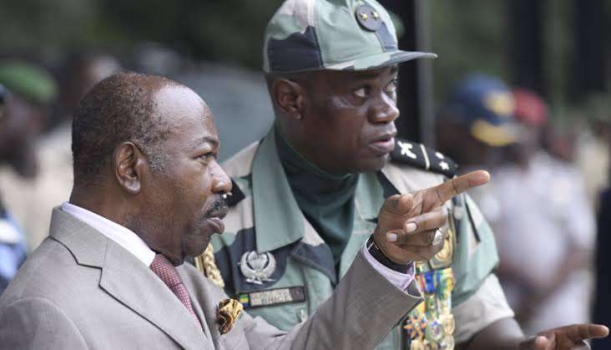By Uche Chris
Last week’s coup in Gabon has exposed the naivety and incompetence of ECOWAS leaders, especially Nigerian president, Bola Tinubu, in the evolving dynamics in Africa and global politics.
The threat of military intervention by the sub-regional body, goaded by some western countries and the African Union, is a desperate reaction, and an indictment of their dishonest and duplicitous disposition to the continuing abuse of power and the mockery of democracy in which guise they are pushing to intervene in the Republic of Niger to restored after the coup that ousted President Bazoum.
With a few exceptions, such South Africa, etc, African leaders, particularly in Sub Saharan Africa, should all hide their faces in shame for bringing reproach and opprobrium to the people and the region by their mindless selfishness and crass opportunism in political leadership.
Where else, but here, can an elected leader, under whatever pretence, perpetuates himself in power for almost half a century in the name of democracy? Almost all post independence Africa leaders, such Julius Nyerere of Tanzania, Jomo Kenyetta of Kenya, Kenneth Kaunda of Zambia, Ahmadu Ahijo of Cameroon, Kwame Nkrumah of Ghana, Tafawa Balewa of Nigeria, Milton Obote of Uganda, Houphet Boigny of Cote d’ Ivoire, Leopold Senghor of Senegal etc were sit-tight dictators. It took coups and death to dislodge them from power.
The atrocities perpetrated by these leaders against their people, especially opposition groups, demand charges of crimes against humanity. But sadly, those, who should promote probe of accountability and human rights abuses are apparently the beneficiaries of such sit-tight dictatorships.
What justification, rationale and moral authority would permit the likes of Paul Biya of Cameroon, 96, who has been in power for 48 years, the longest ruler in the world; Yoweri Museveni of Uganda, 38 years, Nguema of Equatorial, 42; the just deposed Ali Bongo of Gabon, who succeeded his father, Omar Bongo, after about 30 years, and has himself spent 24 years, among other discreditable statistics of failure of leadership and democracy in Africa, to be the defenders of democracy?
Yet, these same despots are the ones crying over the return of coups in Africa in the name of protecting democracy and constitutionalism. Which legitimate constitutional democracy would allow a leader to stay decades in power with periodic elections that are nothing but a sham, even if they are angels? Late Margaret Thatcher, one of the longest serving PM in UK, was humiliated out of power after just 12 years; that’s democracy.
It seems conveniently appealing to these leaders and their western cheer leaders in the orchestra of democracy to ignore the philosophical history and underlining definitions of democracy, which were developed and generally accepted as the best form of government ever invented by man, that guarantees protection from excessive exercise of power and political dominance by one man or a small group of people. No matter how you look at it, except for bigoted tyrants, who would do anything for power, there is no democracy when the people lose the right and power to determine freely who should lead them. Without such freedom to exercise their rights to elect their leaders, any talk of democracy is sheer hypocrisy and deceit.
Perhaps, the champions of democracy in Africa should be reminded of the eternal words of Edmund Burke, a British philosopher and statesman, that “power corrupts and absolute power corrupts absolutely.” This is the crux of the entire debate on democracy in Africa: It is only absolute power that can keep a leader in elected political office for more than two terms without serious opposition or even rejection at the polls, because it is not part of human DNA to accept domination by another man for long without question. No, it has never happened, even in theocracies, as in Iran, which is the worst form of dictatorship, because it is founded on divine legitimacy.
Most people may not know the origin of the two term convention of the American presidency, which has become the acceptable norm in most democracies. It was adopted and has become a constitutional tradition, after the first president, George Washington, refused a third, which enthusiastically offered to him by the generality of the public. Why did he refuse?
By his own account, he had to step down to save his own image and reputation. According to him, the entire country was united under him throughout his first term, but to his sadness and frustration, his second term began to witness more public restiveness and open criticisms of his actions. Hence, he surmised that a third term may lead people throwing eggs and tomatoes at him, and at such a time, he would have to lead by force and without the people’s consent.
The same thing can be said if Madiba Nelson Mandela, may be for a different reason, but the same outcome. The Mandela we know today and remember nostalgically would not be the same if he had been driven by power to continue to second and even third term. So, it is difficult for a leader to be genuinely popular and democratic after a decade in power. Only by undemocratic means can it happen.
Why would the west, particularly the U.S and EU, condemn the regimes in China, Russia, North Korea, and even Turkey, while in the same breath turn a blind to the rape and pillaging in Africa? It is a question that they can’t even provide meaningful answers to, except that it helps them to remain politically relevant in global affairs, and to continue to whip up sentiment against their perceived enemies of democracy, and to coerce neo and pseudo democracies to join their infamous campaign of calumny. The truth is that democracy means little to them, except to further their neocolonial agenda of subjugation and exploitation of Africa. Democracy is only a tool, and relevant when their collective long term interests are affected.
To be continued….
News continues after this Advertisement



